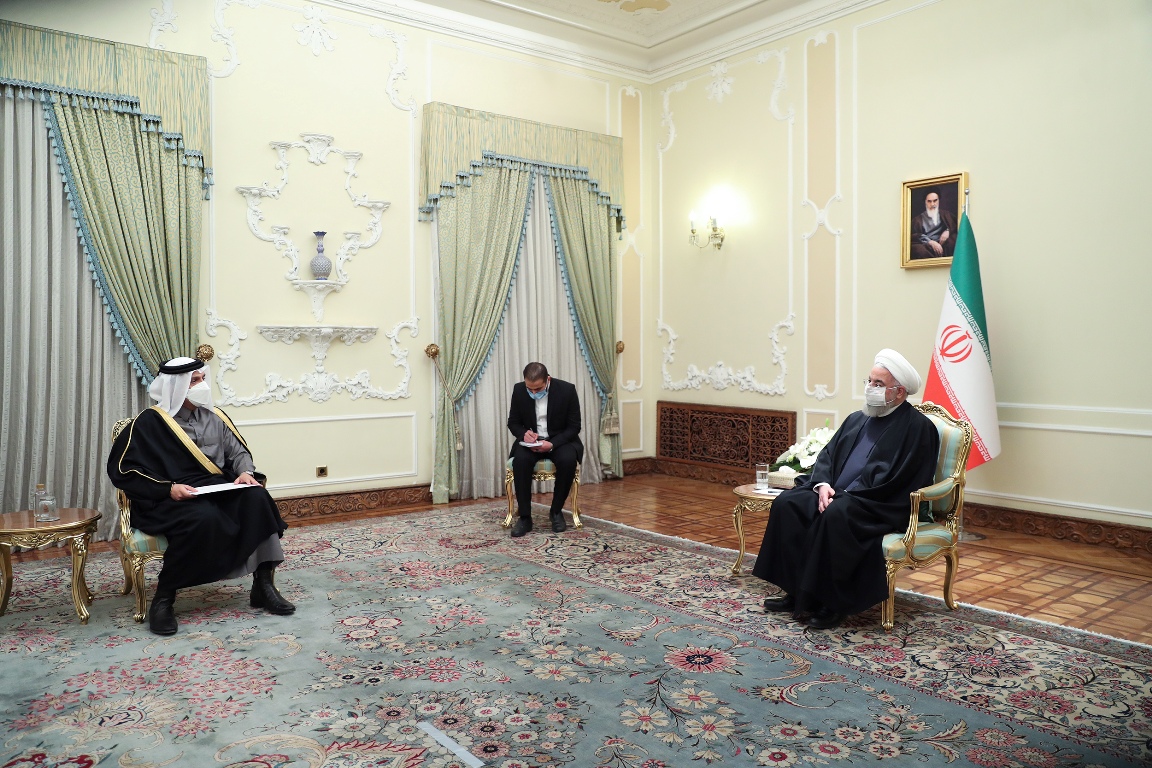AhlulBayt News Agency (ABNA): Qatari Foreign Minister Mohammed bin Abdurrahman Al Thani visited Tehran on Monday and discussed with the Iranian officials bilateral ties and regional and international developments. In recent years, the two countries took firm steps towards strengthening their economic and political relations, resulting in current friendly relationship. Also, the regional developments raise a necessity for Tehran and Doha to coordinate to face the new conditions especially after Biden's election as the US president. However, there are specific goals driving the Qatari FM’s Tehran visit.
Doha emphasis on maintaining friendly relationship with Tehran
Monday visit of the Qatari FM to Tehran was the first visit of a high-ranking Qatari official to Iran after (Persian) Gulf Cooperation Council members’ reconciliation. Saudi Arabia, the UAE, Bahrain, and Egypt lifted their blockade on Doha following a summit of the six-member bloc in the Saudi city of Al-Ula in mid-December, attended by Sheikh Tamim bin Hamad Al Thani, Emir of Qatar, marking a motion to settle the three and half-year crisis with Doha.
Meanwhile, one of the key objectives of the sanctions on Doha was to influence and change Doha regional policy especially its relations with Tehran and also the Muslim Brotherhood and even after détente, the four countries made such demands from the Qatari officials. But the Qatari FM by visiting Iran sent a message both to the four Arab countries and also the Islamic Republic of Iran, telling them that Qatar will maintain its friendly relations with its powerful northern neighbor in the hard times of sanctions. In other words, an important part of the Qatari FM’s mission in Tehran was to discuss continuation of cooperation with his country’s partner Iran.
On the other hand, Iran has always sought to turn political cooperation into opportunities for expanding economic partnerships with its neighbors, especially during unilateral US sanctions, as one of the important priorities of its foreign policy. So, another part of the Qatari foreign minister's consultations could be to expand economic relations between the two countries, as Doha braces for hosting the 2022 FIFA World Cup.
Qatar mediation in nuclear talks and regional dialogue
Aside from bilateral relations, the Qatari FM seems to have a secret mission behind his unannounced visit to Tehran. Over the past few weeks, Doha several times expressed readiness to mediate between Iran and the (P) GCC, and mainly the UAE and Saudi Arabia, and also to facilitate the American return to the 2015 Iran nuclear deal, signed with six powers— the US, China, Russia, France, Britain, and Germany.
Iran’s Foreign Ministry Spokesman Saeed Khatibzadeh on Monday commented on the Qatari efforts to revive the nuclear accord, officially called Joint Comprehensive Plan of Action (JCPOA), saying that “we welcome such efforts.” That the Qatari diplomat arranged the trip to carry a message to Iran or to assess the conditions of playing the role of a mediator is an issue yet to be given publicity by the Iranian officials. Being in a geopolitical encirclement as a result of lack of strategic depth and also vital dependence to energy transfer arteries in the Persian Gulf region, and also with the existence of a security riddle inside the Cooperation Council, Qatar needs to preserve regional stability amid the American-Iranian tensions.
Moreover, Qatar's mediation attempts to materialize Iran's proposal for starting regional talks can be seen as precisely corresponding with Qatar's attitude that favors maintaining regional stability. Saudi Arabia and the UAE have so far shown no genuine will to assuage the tensions by insisting on continuing the war in Yemen, crisis-rousing interventions in Iraq and Lebanon, and also proximity to the Israeli regime as a foul player in the West Asian security order. Yemen war is now a quagmire for the belligerent Saudis and pushing for further clashes only brings about even more complicated situation and increases costs for Riyadh. Naturally, Iran is the most important actor capable of facilitating dignified exit for the Saudis from Yemen war and settlement of the crisis in Yemen. This would be one of the main points of any regional dialogue involving Iran and Saudi Arabia.
/129

